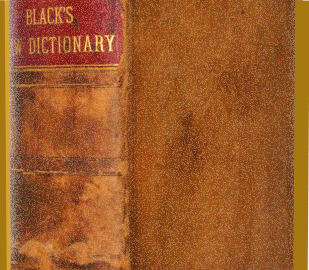14 December 2014
You have just found a 19th-century court minute. Being a "minute," the record tells you very little: the case label and the fact that the case was dismissed. The label is this: "John Jones, for the use and benefit of Sam Smith vs. Billy Brown."
What do you think that case was all about?
We posed this question to EE users last year and got a variety of answers. The most common presumption was that the case involved a slave—given that slaves, under the laws of most states, did not have the legal right to act for themselves. One lone responder, an academic librarian, pegged it right. Cases that bear this "for the use and benefit of ..." label typically involve a suit for debt.
In the case at hand, Brown had signed a promissory note in favor of Smith. Then Smith found himself in need of cash and signed over ("assigned") the note to Jones, at a discount on the total amount that was due. When Brown did not pay, Jones sued to recover the money. However, because Brown had never promised to pay Jones anything at all, Jones's suit had to be filed "for the use and benefit of Smith."
Black's Law Dictionary (that handy-dandy 4th edition that has so many old terms now dropped from current editions) explains a bit of the legal background: "Where the assignee of a chose in action is not allowed to sue in his own name, the action would be entitled 'A.B. (the assignor) for the Use of C, D. (the assignee) against E. F.' In this case, C.D. is called the 'use plaintiff'."1
And now, of course, we're left wondering what a "chose in action" might be. We'll let you pull your own copy of Black's and look that up—or consult an online dictionary such as John Bouvier's Law Dictionary that is handily available here.2
SOURCES:
1. Henry Campbell Black, Black's Law Dictionary: Definitions of the Terms and Phrases of American and English Jurisprudence, Ancient and Modern, with Guide to Pronunciation, 4th ed. (St. Paul, Minn.: West Publishing Co., 1951), p. 1711.
2. John Bouvier, A Law Dictionary, Adapted to the Constitution and Laws of the United States of America and of the Several States of the American Union (numerous editions and various publishers since 1839); rev. 6th ed. (1856) digitized at The Constitution Society (http://www.constitution.org/bouv/bouvier.htm).